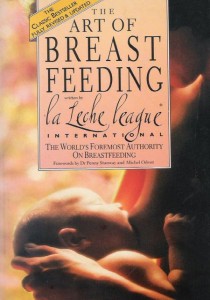Scientific studies have shown that mother’s milk is the most effective food for babies. It is packed with exactly the right amounts of nutrients and antibodies, matching your baby’s needs at every stage of her growth. Breast milk even changes daily in composition so that your breastfed baby sleeps well at night and feels alert in the morning.
However, successful breastfeeding does not just happen by itself (unless you are very lucky or it’s totally meant to be). You need to take an active role in making sure that your baby gets the best infant nutrition on offer.
Here are a few tips:
Inform the hospital of your intentions
If you are giving birth in a hospital, discuss your plan to breastfeed with hospital staff during your pre-natal check-ups. Inform them that you wish to breastfeed on demand and work out the practical details of doing this with them. It is important that the hospital is pro-breastfeeding and this is a good time to determine if the doctor and nurses are supportive of your breastfeeding efforts.
Start early
Put baby to the breast as soon as possible after birth. This is the time when the suckling reflex is strongest and starting immediately after birth increases the likelihood of breastfeeding success. The early milk, called colostrum, is also especially rich in antibodies.
Nurse on demand
Feed your baby every time she fusses and asks to nurse, even if it’s been only 15 minutes since the last feed. Never breastfeed to a schedule. Trust your baby’s instincts and trust your instincts. The more baby nurses, the higher will be your milk production.
Do not look at the clock
Allow your baby to determine the duration of a feed. The foremilk at the start is designed to satisfy baby’s thirst with higher water content and a lower fat content. The creamier hindmilk that comes from an almost empty breast has more fat and less water to satisfy baby’s hunger. During a routine breastfeed, the milk changes between foremilk and hindmilk until baby is done. By allowing your baby to say when he’s had enough, you will ensure that baby gets all that he needs.
Do not give baby any supplements
![]() Breastfed babies do not need water or formula supplements. If fed on demand, all the nutrients that they need is found in the breast milk. Supplements will affect their appetite and interfere with your milk supply.
Breastfed babies do not need water or formula supplements. If fed on demand, all the nutrients that they need is found in the breast milk. Supplements will affect their appetite and interfere with your milk supply.
Do not use artificial nipples
Artificial nipples such as pacifiers and milk bottle teats confuse baby because they require a different sucking action that does not work the jaw muscles the way suckling on the breast does.
Be ready for engorgement
Engorged breasts are fairly common in the early days as new mothers settle into the routine of breastfeeding. Your body is adjusting itself to the rhythm of your baby’s demands. Engorged breasts are uncomfortable and painful but can be remedied by nursing your baby more often and with warm, wet compresses.
Believe in yourself
No matter what your mother-in-law, mother, distant relative, neighbours or the aunties at the wet market say; you have enough milk for your baby. Milk production has nothing to do with how thin or fat you are.
Find a support group
We all need support to get over the bumps in our lives. With breastfeeding, especially if it is with your firstborn, it is likely that you will encounter little obstacles and challenges along the way. Get your spouse on your side. Prepare together for breastfeeding by reading up about it. Talk to friends and family members who have done it before. Join breastfeeding support groups on the Internet.
Eat well
Eat a healthy, well-balanced diet that is full of vitamins and minerals—whole grains, nuts, fruits and veggies, lean meats—to ensure that you get all the nutrients that your body needs. Drink plenty of water. Breast milk draws its ingredients from the mother’s food supply and any lack is made up from the body’s stores so be sure that you are eating well and enough. Whatever you eat or drink goes straight to your baby which makes it a good time to refrain from alcohol, coffee and anything else that you wouldn’t want your baby to have.
Get enough rest
Having a newborn in the house is a time of stress and great activity. There is so much to do—for baby and around the house—that we often forget to look after ourselves. Being well rested is critical to milk production. Sleep or rest every time baby naps—the housework can be done later. Consider having baby sleep with you in the night. This way you only need to roll over and latch baby onto your breast whenever she wants a feed. I have often fallen asleep while my baby was still breastfeeding only to be woken up again when he asked to change sides.
Relax and enjoy the experience
Most importantly, relax and enjoy your baby. They are babies only once in their lives. I used to think—with some desperation—that I would forever have a baby attached to my body. As I discovered, all too soon, the breastfeeding stage does come to an end. Enjoy it while you can!









I have been nursing my kids for a long time now. All you have written is true!